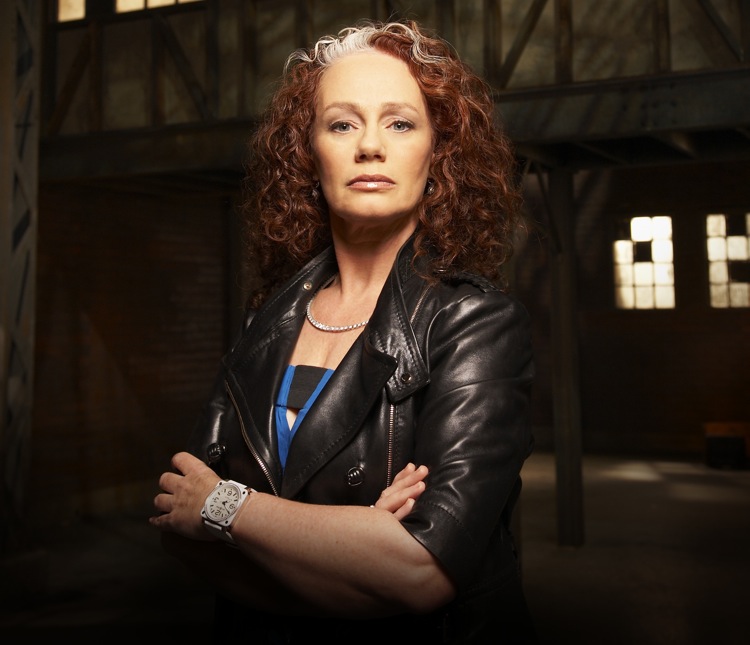
ASHLEIGH MATTERN
Editor-in-Chief
“Don’t get caught up in being a woman in business, get caught up in being in business,” said Arlene Dickinson, owner of Venture Communications and best known for her role on CBC’s Dragons’ Den.
  “Thirty or 40 years ago, women fought hard for a right to sit at a business table. Now we should be fighting hard to be competent at the business table, and no longer characterize ourselves as women at the table but as business people at the table.”
  Dickinson was at the University of Saskatchewan on March 4 to speak to 21 student entrepreneurs — all of them women. She had a lot of advice for business people in general, but much of the conversation was geared towards women entrepreneurs specifically.
  Gabrielle Scrimshaw, a fourth-year Edwards School of Business student, asked what advice Dickinson would give her 20-year-old self. The question elicited a long pause from Dickinson.  Â
“It probably would have been to eat less when I was pregnant,” she responded, which elicted a laugh from the mostly 20-somethings at the lunch.
“I am not kidding. You pay later on for what you did to your body,” she added with a laugh. “That’s a very girl thing to say but it’s very true.”
  She went on to say that she would also tell herself not to take everything so seriously.
  “I thought that every decision was monumental and if I made a mistake then that would be a mistake forever. And what I’ve learned is that the mistakes are actually learning experiences.”
  It was the first piece of advice of many to come during the hour-long lunch meeting.
  Dickinson is the only woman on the panel of successful business people on the Dragons’ Den panel. Other panelists include Jim Treliving, owner of Boston Pizza, and U of S graduate W. Brett Wilson, owner of Prairie Merchant and founder of the W. Brett Wilson Centre on campus, which provided the opportunity for the lunch with Dickinson.
  Now in its fifth season, the format of Dragons’ Den is similar to the American Idol format, but instead of getting up in front of judges and singing, the contestants get up in front of prospective investors and pitch their businesses.
  The business people on the panel seem heartless at times, and many of the contestants walk away rejected, but Dickinson says sometimes that’s what it takes.
  “You can be aggressive without being bitchy; you can be strong without feeling like you don’t have a right to be.”
  Despite her assertion that women should think of themselves as business people first, she admitted there are differences between women and men. For example, Dickinson pointed out that more women start businesses than men, but more men stay in business and go big with that business.
“We’re the people that when the parents get sick we quit our careers. When we have children, we quit our careers. When our husband needs to go to school, we quit our careers. And that’s unfortunately the genetics that you’ve all been born with, and it’s not a bad thing; there’s a lot to be said for moms who stay at home and raise the next generation. It doesn’t mean that you shouldn’t be business people too.”
  In 1988, Dickinson started as at Venture Communications, and by 1998, she was the owner. The Dragons’ Den intro says she has made “tens of millions of dollars” but it isn’t all about successes.
Carlene Deutscher, Wilson Centre marketing coordinator, asked what Dickinson has learned from her failures.
“Divorce has taught me a lot. That’s a big failure; I consider that a failure. Not being successful in marriage has taught me a lot about myself as a person…. My biggest failure in business was taking too long to figure out that as an entrepreneur I couldn’t do it myself.”
  After living in Austrailia, Scrimshaw was inspired to start her own business, importing clothing from Australian designers for her proposed store Indulge, which she hopes to open this summer after graduating.
Scrimshaw said she could relate to Dickinson.
  “She wasn’t intimidating or rude or checked her Blackberry every two minutes. She came around and she shook all of our hands,” said Scrimshaw. “Those are the sort of relationship management things that people who are really successful, they get it. She was human. For everything else, she cut the BS and she got right to it.”
As for the female-tailored advice, Scrimshaw said it was nice to hear a successful woman talk about her experiences.
  “We can’t say that (men and women are) equal because we’re not, we’re different. We have to acknowledge those differences and work with them”¦. Women have strengths that men don’t have.”
“We (employers) check Facebook to find out what’s going on with the people we hire…. You each have a brand and you each have an obligation to manage your brand and no one else will do it for you. If you don’t manage a brand, it will manage you.”
“Nothing beats face to face communication.”
“You need to find where your strengths are and then shine. Don’t be afraid of what you know, but don’t let your insecurities personally drive your business behaviour either.”
“The passion I have for my children, which is unconditional love, is the same passion I have for my business. Nobody was going to take me off that path. If you just have a job or you create a business because you feel like you should, you won’t succeed.”
“My mentor is the person sitting right next to me…. Never be afraid to ask the person sitting right next to you about themselves. You’ll be amazed at what you learn.”
“You will never be strong mentally if you’re not strong physically. The best stress relief I have happens to be running. I weight-train and I run.”